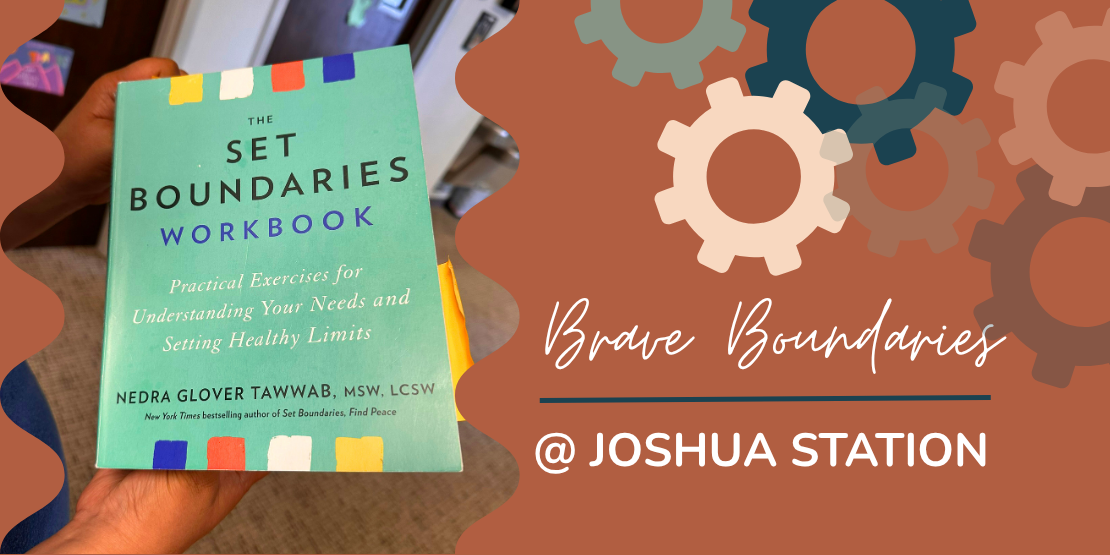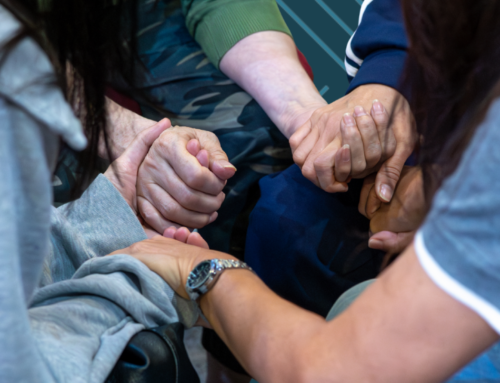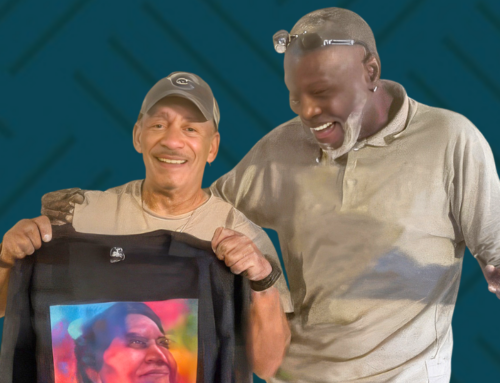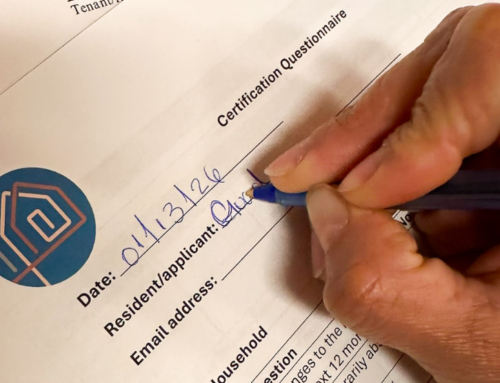“I constantly learn generosity from our Joshua Station residents,” is a common refrain among volunteers and staff. Many remark that our residents are the most giving group of people they’ve ever encountered, with a transformational impact on people who came expecting to give rather than receive.
At the same time, most of our residents have experiences—both traumatic and chronic—of being exploited or taken advantage of in relationships. So they are learning:
- It’s daring to live a boundaried life
- It’s brave to run the risk of others becoming upset with you
- It takes courage to use your voice
- Even through fear, you can set boundaries
- Even through guilt, you can set boundaries
These are themes explored by our resident “Boundaries Groups” that meet weekly with several members of our Joshua Station counseling team. The small groups, held in either Spanish or English, are exploring the book The Set Boundaries Workbook: Practical Exercises for Understanding Your Needs and Setting Healthy Limits by therapist Nedra Glover Tawwab.
“Boundaries are ways to communicate our needs to others via words and actions, Tawwab writes. “They are also perimeters that we establish with ourselves and others. Therefore, boundaries aren’t just for telling other people what to do but are also about holding yourself accountable for creating your life.”
Joshua Station’s counseling director Monica Rowell observes, “People now are coming to their individual therapy saying, ‘I just realized that I have big boundary issues that keep coming up in my friendships.’ They couldn’t have named that prior to being in the group. They are overextended and exhausted, often because they are afraid to say no. They loan money, give rides, do childcare, and take responsibility in ways beyond their capacity. It becomes a detriment to their own health and healing.”
By sharing their own vulnerable stories in a safe setting, group members explore how childhood patterns shape current relationships. Can they get unstuck?
So, the groups role play. A friend asks you to take in their kids for two hours every day after school. You’re working on your GED prep in the afternoons. If you say no, what will your friend do? What will they think of you? You’ll feel so guilty. You avoid your friend, delaying an answer. Maybe you’ll come up with something vague like, “Sometimes.” Maybe you’ll want to explain, or more likely over-explain, while apologizing.
Group members practice responses that are Clear, Concise, Consistent—qualities of healthy boundaries. “How did that feel to say?” Not very good, at first. Better, as the scenario plays out. They find it’s actually a way to be more loving.
One participant acknowledged, “I was leaving the group, going back home, and teaching the concepts to a particular family member who needed to hear it. Then I realized really, I just need to practice these boundaries myself!”
Don’t we all?







